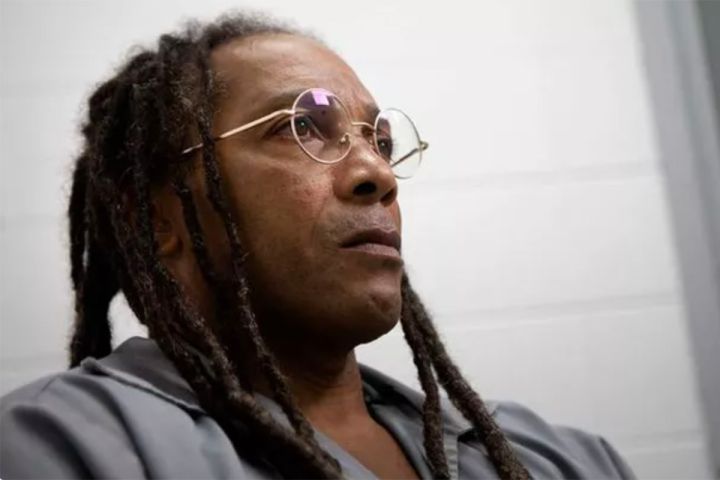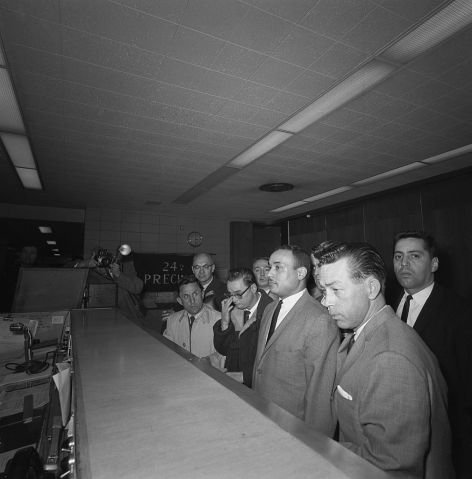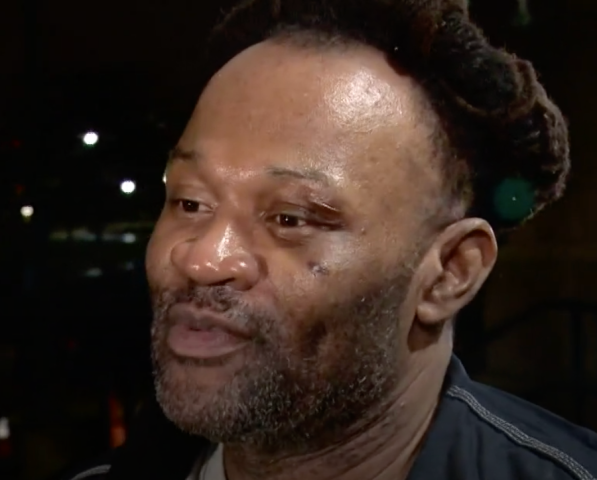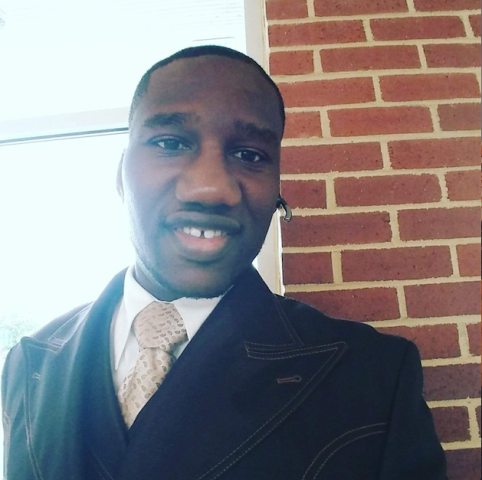Black Folks Wrongfully Convicted Then Exonerated

UPDATED: 9:30 a.m. ET, October 31, 2022 —
Black people who were convicted of crimes they never actually committed. It’s a tragic story told time and time again. But have you heard the one about the Black man exonerated for his crimes? –Rarely.
Thankfully, in recent years wrongly convicted Black men and Black women have been walking out of prison free.
The 69-year-old Black man was released after DNA evidence that was left untested for years pointed to a different person.
Hastings consistently proclaimed innocence over years.
According to CBS News, in 2000 Hastings attempted to get the DNA tested, but was denied by the DA’s office. In 2021 he submitted a claim of innocence to the District Attorney’s Conviction Integrity Unit, which found that the DNA was not his.
In October the DNA profile was put into a state database and hit a match with a person who was convicted of armed kidnapping and was serving prison time for a different kidnapping and rape case.
“I prayed for many years that this day would come,” Hastings said during a press conference. “I am not pointing fingers; I am not standing up here a bitter man, but I just want to enjoy my life now while I have it.”
In 1983 Hastings was charged with sexually assaulting and killing Roberta Wydermyer. According to authorities, Wydermyer was killed by a single gunshot to the head. Her body was found in the trunk of her car in Inglewood, California.
When Hastings was charged, the DA sought the death penalty, but the jury deadlocked. But in 1988, a second jury would sentence him to life in prison without the possibility of parole.
Police have not released the name of the person they believed murdered Roberta Wydermyer, but said they died in prison in 2020.
Maurice Hastings won’t be able to get the years he lost back, but he will get to spend the rest of his life with the folks who love him.
A bombshell study in 2017 confirmed what Black people had long known to be true: that Black people are more likely to be wrongly convicted of murder than people from any other group. To add insult to the injury of wrongful convictions, innocent Black people waited years longer than the average time it took a white prisoner accused of the same crime to be exonerated.
“It’s no surprise that in this area, as in almost any other that has to do with criminal justice in the United States, race is the big factor,” Samuel R. Gross, a University of Michigan law professor, told the New York Times.
Of course, the so-called Central Park 5-turned Exonerated 5 are perhaps the most widely recognized instances of Black people being cleared following wrongful convictions. They were the group of Black and brown teens who were falsely accused and imprisoned between five and 12 years stemming from false allegations of raping a white woman in the 1980s.
The list of Black men, women, and teens who have faced wrongful convictions from prosecutors after being unjustly arrested and accused by corrupt police officers is far too long. Keep reading to find a growing list of additional examples.
1. Thomas Raynard James
On April 27, 2022, Thomas Raynard James was freed after spending 32 years in a Florida prison for a crime prosecutors found he never committed. According to the State Attorney Office Justice Project (SAO Justice Project), the now 55-year-old was convicted in 1991 for the first-degree murder of Francis McKinnon.
According to CNN, he was sentenced to life in prison with a 25-year minimum and was also sentenced for armed robbery, aggravated assault with a firearm, as well as armed burglary of an occupied dwelling with a firearm.
During his 32-year prison stint, James filed more than 10 post-conviction appeals, but each was denied.
In June 2021, James’ case was reviewed by the SAO Justice Project. They examined DNA, firearms, crime scene evidence, interviews of witnesses, and over 20,000 pages of records. They found there was no ‘physical evidence’ that tied him or anyone to the crime.
The SAO Justice Project also revealed an eyewitness had believed she made a mistake in identifying James in the crime.
Now that James is a free man, he plans to find a job and enjoy his family.
“This has been a long time coming,” he said in an interview with CNN. “Now, let me go enjoy life.”
2. Vincent Simmons, wrongly convicted of attempted aggravated rape
Imagine spending 45 years behind bars for a crime you say you didn’t commit. This was a reality for Vincent Simmons, who was set free on Feb 15., after he was granted a new trial, then his charges were dismissed. In 1977, Simmons was convicted of attempted aggravated rape of 14-year-old twin sisters. His case was awarded a new trial after Lousiana Judge William Bennett believed new evidence that had come to light should be presented in court.
With the consent of the victims, District Attorney Charlie Riddle dismissed the charges against Simmons, though he made it clear his decision wasn’t a declaration of innocence, instead a way to keep the women from going through another trial.
But Simmons’ lawyer Justin Bonus expressed a different sentiment. “What I think people really need to think about is it could be you,” he said in an interview with KALB. “You could be framed and in 60 days thrown in prison for 100 years. That is shocking.”
3. Devonia Inman, wrongly convicted for murder and robbery
Devonia Inman, an innocent man who was wrongly convicted for murder and robbery, walked out of prison a free man on Dec. 20, 2021, after 23 years of incarceration. Inman was serving time in Augusta State Medical Prison in Georgia.
The Georgia Innocence Project championed Inman and his case and announced that all charges against him had been dropped. According to the Georgia Innocence Project:
“In a 2001 death penalty trial, Devonia was convicted of the September 1998 armed robbery and murder of a Taco Bell manager in Adel, Georgia. There was no physical evidence linking Devonia to the crime and he had an alibi. After trial, three of the four key witnesses against Devonia said they lied on the witness stand because they had been pressured and coerced by the police. The fourth witness – a newspaper delivery person – was paid $5,000 for purported eyewitness testimony that was directly contracted by another newspaper delivery person who was with her at the time.”
4. Kevin Strickland, exonerated after wrongful conviction for murder
Source:GoFundMe/Tricia Rojo Bushnell
On. Nov. 23, 2021, Kevin Strickland was finally be set free from prison after serving 43 years behind bars. He gained his freedom because a Missouri prosecutor filed a motion after a new law was passed allowing local prosecutors to ask judges to free incarcerated people they believed were innocent.
A judge ruled that the conviction could not stand because the confidence in the prior determination was undermined. Experts say Strickland’s case is the longest wrongful conviction in Missouri history, and one of the longest in the country. Strickland was 18 when he was arrested in connection with a triple murder.
No physical evidence ever connected Strickland with the case. The only eyewitness previously recanted her statement before her death in 2015.
USA Today reported that he learned of the decision while watching television and the announcement scrolled across the screen.
5. Muhammad A. Aziz and Khalil Islam
Source:Getty
Muhammad A. Aziz and Khalil Islam, formerly known as Norman 3X Butler and Thomas 15X Johnson, respectively, are expected to be cleared for the 1965 murder following a nearly two-year investigation by the Manhattan District Attorney’s Office, according to a report from the New York Times, which broke the news on Wednesday.
The move to exonerate the two men came months after new evidence in Malcolm X’s assassination that implicated both the FBI and the NYPD.
Malcolm X’s daughters held a press conference back in February to release a deathbed confession letter from Ray Wood, who worked as an undercover police officer at the time of the assassination on Feb. 21, 1965. Wood admitted in the letter to abetting the FBI and NYPD in assassinating Malcolm X. The letter was written in January of 2011.
Woods’ allegations echo theories raised in the 2020 Netflix documentary, “Who Killed Malcolm X?” which prompted the Manhattan District Attorney’s Office to review the case with the possibility to reopen it if leads proved sufficient.
The docu-series followed Abdur-Rahman Muhammad, an activist and self-trained investigator who dedicated his life work to solving the civil rights icon’s murder. In the documentary, Muhammad interviews several important figures involved in the investigation, explores different conspiracy theories including possible federal and state law enforcement involvement. Muhammad also attempts to explore an accusation that Malcolm X’s alleged killer was a Newark community leader who worshipped at a local Mosque.
The Manhattan District Attorney’s Office did not say who was actually responsible for Malcolm X’s assassination, for which three men were jailed. Talmadge Hayer – later known as Mujahid Abdul Halim – admitted he took part in the murder, while Aziz and Islam maintained their innocence. Aziz was released on parole in 1985; Islam was released in 1987 but died in 2009; Halim was released in 2010.
The DA’s investigation uncovered evidence that “prosecutors and two of the nation’s premier law enforcement agencies — the Federal Bureau of Investigation and the New York Police Department — had withheld key evidence that, had it been turned over, would likely have led to the men’s acquittal,” the Times reported.
6. Juwan Deering
A judge in September 2021 dismissed murder charges against Juwan Deering, who had served 15 years for the arson deaths of five children in a Detroit suburb.
Deering, who is now 50 years old, told the Associated Press that he was thrilled at the judge’s ruling while briefly addressing his nearly two decades behind bars for a crime he never committed.
“It’s been a hard uphill battle. … The sun couldn’t shine on not a brighter day,” Deering said Thursday after the judge’s ruling. “This is the brightest for me.”
In a familiar theme with so many exonerations, members of law enforcement stepped forward to say that there was insufficient evidence to charge Deering for the 2000 fire.
Deering had been serving a life sentence for the deaths in a fire that police said was set as “revenge for drug debts,” the AP reported earlier this year. However, there were no eyewitnesses.
Oakland County prosecutor Karen McDonald suggested that the fire in Royal Oak Township was not arson after all.
A Michigan law could mean that Deering will be paid $50,000 for each of the 15 years he spent in prison, amounting to more than $700,000 if there is proof that he was wrongly convicted.
Deering’s exoneration, like many others, also needed a bit of good fortune.
That happened when McDonald, a former judge, voluntarily revisited the case following her election last year.
“Fairness and transparency are paramount,” McDonald said at the time. “We must always do the right thing, even if it exposes our own office, even when it’s not easy.”
McDonald added: “As prosecutors, we have an ethical duty to disclose information that bears on the guilt or innocence of the accused. We also have a duty to disclose to juries what, if anything, an informant was given in consideration for their testimony. Based on the evidence I reviewed, I am gravely concerned that this was not done in the case against Juwan Deering.”
8. Walter Forbes
Walter Forbes, 63, was released from prison on Nov. 20, 2021, after a key witness in his case admitted they lied. Forbes was falsely convicted of arson and murder and spent 37 years, almost four decades, behind bars.
9. Termaine Joseph Hicks
Termaine Joseph Hicks was accused of raping a woman who he says was attacked before he heard her cries for help and went to assist her in 2001. That’s when police arrived on the scene and promptly shot Hicks in the back, claiming he had a gun. The jury that convicted Hicks never saw evidence that would have presented reasonable doubt he committed the crime. Namely, video surveillance that contradicted police accounts, including cops’ assertion they shot Hicks in the abdomen, was never presented during the trial.
“False testimony was used,” Patricia Cummings, chief of the Conviction Integrity Unit, told the Philadelphia Inquirer. “And I believe it’s impossible to say that did not contribute to the conviction.”
10. Clifford Williams, Nathan Myers
Clifford Williams and his nephew Nathan Myers spent 43 years in prison for a murder that they did not commit. According to the Florida Phoenix, the uncle and nephew were convicted of fatally shooting a woman named Janette Williams, who was not related to either of the men, in her bedroom in 1976. Williams and Myers’ convictions were found to be based on one witness’ account: the victim’s partner. There was also no forensic evidence to corroborate the witness’ testimony. A man named Nathaniel Lawson later confessed to killing Williams in a drug dispute. It was later discovered that the bullets that killed Williams came from outside of her window, not inside of her home, according to the report.
Williams was 33 and Myers was 18 when they were convicted.
11. Calvin Bright
Source:WUSA9
Calvin Bright walked free after serving 25 years in a Washington, D.C., prison for a double murder that he did not commit. According to a report from the Associated Press, Bright was convicted of first-degree murder in 1994 for the shooting deaths of Tammy Peay and William Ramsey. However, Bright’s lawyers had no knowledge of a letter from DC police, which named another man as a suspect in the murders, and according to his legal counsel could have changed the entire trajectory of his case. The report says Bright maintained his innocence and recently passed a polygraph test, which questioned if he committed the murders.
Bright was originally sentenced to 65 years to life but reached a settlement with the U.S. State’s Attorney’s Office and his sentence is now “time served,” according to WUSA9. Per the agreement, he also cannot sue for his wrongful conviction.
12. Kevin Baker, Sean Washington
Kevin Baker and Sean Washington spent 25 years in prison for a 1995 double murder at a housing complex in Camden, New Jersey, for which they had both maintained their innocence. Baker and Washington were convicted after being on trial for only two days. A woman named Denise Rand, who testified in the case, told jurors that she was high on crack cocaine when she witnessed Baker and Washington approach Rodney Turner and Margaret Wilson, shooting them both in the head.
A three-judge appellate dropped the case because the witness “vacillated on many aspects of her narrative.”
Baker said he was not near the scene when the incident took place. Washington said he discovered the bodies and called 911. The 911 call surfaced years later.
The evidence also proved the men’s innocence as “ballistics and forensics testing that showed the victims were killed by a single shooter while lying in the courtyard — not by two shooters while standing upright, as Rand had testified,” according to NJ.com.
The appeals court also determined that the evidence, in addition to Washington’s 911 call, would result in a different verdict from the jury.
Camden County Prosecutor’s Office said neither Baker nor Washington will be retried for the crime. The office additionally said that the notice of reinstating their convictions will be retracted.
13. Theophalis Wilson
Theophalis Wilson was freed from prison after serving 28 years for a triple murder that he did not commit. The Philadelphia Court of Common Pleas exonerated the 48-year-old and ordered his immediate release following a judge tossing his conviction due to “serious misconduct by the prosecution, an ineffective defense and a witness who supplied false testimony,” according to a Philadelphia ABC affiliate.
14. Alfred Chestnut, Ransom Watkins, and Andrew Stewart
In November 2019, Alfred Chestnut, Ransom Watkins, and Andrew Stewart from Baltimore were freed from prison after 36 years for a wrongful murder conviction. They were accused of shooting and killing 14-year-old DeWitt Duckett after allegedly trying to rob him of his Georgetown University Starter jacket in 1983. Police arrested the three teens on Thanksgiving Day that year. They were ultimately convicted of murder and sentenced to life in prison. Prosecutors later admitted that the case “encouraged false witness testimony and ignored evidence of another assailant.”
15. Deandre Charles
Deandre Charles, who was 15 years old at the time, was accused of gunning down Rabbi Joseph Raksin in August 2014. Evidence in the case used by prosecutors included a faulty suspect sketch, which looked like it could have been the work of a middle schooler. The police claimed that Charles’ DNA was on the murder weapon and the getaway vehicle. Investigators also said cellphone records indicated that the teenager was near the crime scene. However, the circuit judge presiding over the case criticized the prosecutor for its circumstantial evidence that fell apart. He ordered the prosecutor to release Charles on bail in March 2016. The district attorney dropped the charges in January 2017.
16. Exonerated Five – Raymond Santana, Kevin Richardson, Antron McCray, Yusef Salaam and Korey Wise
In 2002, the now-Exonerated Five — Raymond Santana, Kevin Richardson, Antron McCray, Yusef Salaam and Korey Wise — were released from prison after being wrongfully convicted of crimes related to the rape of a white woman, Trisha Meili, in Central Park in 1989. The men, who were teens between the ages of 14 and 16 at the time, became labeled the Central Park Five. The prosecution of the teens was based on confessions they made after being interrogated by police, with neither counsel nor parents present. Their convictions were vacated after Matias Reyes, a convicted murderer and serial rapist serving a life sentence in prison, confessed to the crime in 2001.
They were exonerated in 2002. Following their release, the five men filed a lawsuit against the City of New York for malicious prosecution, racial discrimination, and emotional distress, and received a $41 million settlement. They also sued New York State for additional damages. The lawsuit was settled in 2016 for $3.9 million.
17. Anthony Ray Hinton
Anthony Ray Hinton was wrongly convicted of two murders that took place in Jefferson County, Alabama in 1985. Despite having no witnesses and no fingerprint evidence, the State convicted him by saying the murder weapon, a gun, was at his mother’s home. He spent nearly 30 years in prison for a murder he didn’t commit. He was exonerated in 2015. The movie, ‘Just Mercy,’ is based on his life.
18. Lamar Johnson
After more than 13 years in prison, a judge tossed the wrongful conviction of Lamar Johnson after three new witnesses came forward to say he was not the gunman who killed Carlos Sawyer in 2004. While Johnson has been technically exonerated, “a battle in Missouri between his progressive prosecutor and a conservative state attorney general has left him in limbo,” PBS reported in the summer of 2021.
19. Wilbert Jones
Wilbert Jones spent 45 years in prison for a rape he did not commit. He was given a life sentence without parole after allegedly abducting a nurse outside of Baton Rouge hospital. Baton Rouge Judge Richard Anderson released Jones on a $2,000 bond, claiming that there wasn’t enough evidence to show that he committed the crime.
20. Xavier Davis
Source:Courtesy of Xavier Davis
Xavier Davis was jailed for months in 2018 for alleged sexual assault that he did not commit. Davis was cleared of wrongdoing through DNA evidence. He told NewsOne at the time, “I lost everything by going to jail. I lost my job and was homeless when I got out of jail.”
However, as of July 2021, Davis remained jailed
21. Huwe Burton
In 1991, Huwe Burton was arrested at age 16 for the killing of his mother. His confession was coerced by detectives, and after spending nearly 20 years behind bars and another 10 on parole, he was exonerated in 2019.
Source link









